| |
Please click on the name of the person to view personal information
Click on the color box again to fold the panel
| 1986 |
Chemical Sciences |
Dr. Yuan-Tseh Lee |
ytlee@gate.sinica.edu.tw |
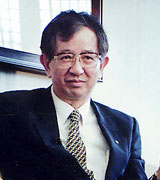
Dr. Yuan-Tseh Lee
Genomics Research Center 7F, Academia Sinica
128, Sec. 2, Academia Road, Nankang, Taipei, 11529, Taiwan
Tel : +886 2 2789-8802
Fax: +886 2 2789-8801
|
Brief Resume:
Born in 1936, Yuan Tseh Lee received his B.S. degree from Taiwan University in 1959, M.S. from Tsing Hua University in 1961, and Doctorate from UC-Berkeley in 1965. He joined Dudley Herschbach’s group at Harvard as a research fellow in 1967. After being appointed Assistant Professor at the University of Chicago in 1968, Dr. Lee rapidly made his laboratory a major center for molecular beam study in North America. He returned to Berkeley as Professor of Chemistry in 1974. He was University Professor and Principal Investigator at the Lawrence Berkeley Laboratory, UC Berkeley, before he became President of Academia Sinica in 1994. In 2006 he became President Emeritus and Distinguished Research Fellow at the same institution. In 2008 he was elected president of the International Council for Science (ICSU) and will take up the appointment in 2010.
Dr. Lee has received numerous awards and honors, including the 1986 Nobel Prize in Chemistry, the U.S. National Medal of Science, Faraday Medal and Prize from the Royal Chemical Society of Great Britain, and the Jawaharlal Nehru Birth Centenary Medal from the Indian National Science Academy. He is a fellow of the U.S. National Academy of Sciences, the American Academy of Arts and Science, and Academia Sinica; a foreign member of Gottingen Academy of Sciences, Indian National Academy of Sciences, Korean Academy of Science and Technology, Royal Swedish Academy of Engineering Sciences, the Third World Academy of Sciences, etc. Dr. Lee has received Doctor Honoris Causa from 36 universities throughout the world.
>> Link to personal website
TOP |
|
| 1990 |
Agricultural Sciences |
Dr. I Chiu Liao |
icliao@mail.ntou.edu.tw |
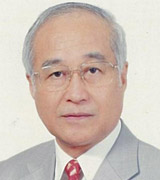
Dr. I Chiu Liao
Department of Aquaculture College of Life Sciences
National Taiwan Ocean University
2 Pei-Ning Road, Keelung 202, Taiwan
Tel : +886 2 2462-3055
Fax: +886 2 2463-4994 |
Brief Resume:
Known as the “Father of P. monodon culture”, Academician I-Chiu Liao is the pioneer of artificial propagation. After he finished his Ph.D. in Japan, Dr. Liao devoted himself into the larval rearing of penaeid species. The breakthrough on the larval rearing of grass prawn established the foundation of the prawn culture industry in Taiwan. Dr. Liao then successfully completed the breeding system of grey mullet and milkfish. These achievements have greatly improved the possibilities of sea ranching and artificial propagation, which leaded to the mass production of prawns and of other marine fishes. As Director of Tungkang Marine Laboratory, Dr. Liao is instrumental in converting the laboratory into a leading aquaculture research in the region. As Director General of Taiwan Fisheries Research Institute (TFRI), Dr. Liao is instrumental for the realization of the Fishery Researcher I, a 2000T research vessel, which boosted the research capabilities of the Institute in the open sea. The construction of two public aquaria – Penghu Aquarium and e-Aquarium – was also a noteworthy achievement during his term. Dr. Liao has published and presented over 400 papers (in English, Chinese or Japanese). Some of these papers have been translated to other languages, Due to his outstanding research and contribution to the fishery, Dr. Liao has been given several important awards and honors. He was elected the academician of the Academy of Sciences for the Developing World in 1990, and honored as academician of Academia Sinica in 1992. Currently, He is the president of Taiwan Fishery Society. After retiring from TFRI, Dr. Liao continues teaching in National Taiwan Ocean University, National PingTung University of Science and Technology, and National Taiwan University.
>> Link to personal website
TOP |
|
| 1993 |
Systems Biology |
Dr. Chang-Hung Chou |
choumasa@mail.cmu.edu.tw |
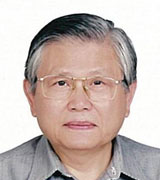
Dr. Chang-Hung Chou
Research Center for Biodiversity and Graduate Institute of Ecology and Evolutionary Biology
China Medical University
91, Hsueh-Shih Road, Taichung 404, Taiwan
Tel : +886 4 2205-3366 #1633
Fax: +886 4 2207-1500 |
Brief Resume:
Chang-Hung Chou obtained his Ph.D. at UC Santa Barbara in 1971 and was a postdoctoral fellow at Toronto University in 1972. He is the Dean of College of Life Sciences and Chair Professor and Director of Research Center for Biodiversity, China Medical University, Taiwan. He was Director, Inst. of Botany, Academia Sinica, and Dir. of the Life Science Research Promotion Center for NSC, Taiwan, 1989-1996; Vice Pres. and Natl. Chair Prof., Natl. Sun Yat-Sen Univ., 1999-2002; Pres. and Prof., Natl. Pingtung Univ. of Science and Technology, 2002-2006; Vice Pres., IUBS, 1997-2000. Dr. Chou is a pioneer researcher in Allelopathy and has published many outstanding papers in journals, books and monographs with high citation. In addition, he has actively involved in population ecology study of Miscanthus species in Asia and the Pacific islands. Recently, he has elucidated the evolutionary trend of Miscanthus taxa in Asia and molecular phylogeography of Phalaenopsis species. In addition to his contribution in academic research, Dr. Chou has devoted his life in protection of environment and natural conservation in particular to the preservation of Tamshui mangrove forest, which is a very unique site for environment education in Taiwan. As results of his research, he has published more than 200 referee papers, 12 monographs, and one textbook, etc. His has received many prestige awards and honors, including Academic Award in Agriculture, MOE, Distinguished Research Award, NSC, Taiwan; Distinguished Official Award, President Office of Taiwan, 1992; Highest Honor of Soka University, Japan, 2002; Highest Award of International Academic Cooperation, Russian Academy of Science, 1999; He was elected into the Fellow of The Academy of Sciences for the Developing World (TWAS) in 1993, and elected Academician, Academia Sinica, Taiwan in 1994. Up to now, he has served Chairman of several National Committee Members, including IUBS, IUTOX, SCOPE, DIVERSITAS and PSA.
>>Link to personal website
TOP |
|
| 1999 |
Chemical Sciences |
Dr. Reuben Jih-Ru Hwu |
jrhwu@mx.nthu.edu.tw |
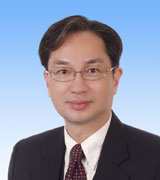
Dr. Reuben Jih-Ru Hwu
Chemistry Building R602 Department of Chemistry, National Tsing Hua University,
101, Sec 2, Kuang-Fu Rd., Hsinchu 30013, Taiwan
Tel : +886 3 571-5131 #33412
Fax: +886 3 5711-082 |
Brief Resume:
Dean of College of Science, National Central University (2007–); Chair Professor of Chemistry, National Central University (2008–); Chair Professor of National Tsing Hua University (2006–); Born 1954; B.S. in Chemistry, National Taiwan University (1972–76); Ph.D., Stanford University (1978–82); Associate and Assistant Professors, The Johns Hopkins University (1982–91); Fellow of The Third World Academy of Sciences (1999–); Fellow of International Union of Pure and Applied Chemistry (2000–); Fellow of The Royal Society of Chemistry (2005–); Regional Editor, Mini-Reviews in Medicinal Chemistry (2000–); Visiting Professor of University of Cape Town, South Africa (1997); Visiting Professor of University of Louis Pasteur and CNRS, France (1998); Visiting Professor of Royal Society of Chemistry for Universities of Cambridge, Glasgow, Manchester, Nottingham, and Imperial College, United Kingdom (2000); Visiting Scholar of Deutscher Akademischer Austausch Dienst for Universities of Berlin, Frankfurt, Gottingen, Hamburg, and Osnabruck, Germany (2001); and Visiting Chair Professor of Peking University, China (2005).
Awards: Award for an Outstanding Achievement (2008); Honorary Research Fellow Award of National Science Council (2008); Outstanding Scholar Award (2007–12); National Innovation Award (2007); National Biotech. and Medical Care Quality Award (2007); Honorable Research Fellow of National Science Council (twice, 2001–07); Distinguished Research Award, National Science Council, (three times, 1992–2001); The Third World Academy of Sciences Award in Chemistry (1997); The Outstanding Young Persons of the World, Junior Chamber International (1994); Outstanding Research Award, National Science Council (1994); Federation of Asian Chemical Societies 1992/1993 Distinguished Young Chemist Award; Ten Outstanding Young Persons of Republic of China in Scientific and Technological Development (1993); Alfred P. Sloan Research Fellowship, U.S.A. (1986–90); Stuart Pharmaceuticals Achievement Award, ICI Americas Inc. (1986); W. H. Nichols Scholarship, Stanford University, U.S.A. (1982); Ming-Yu-Wen-Hwa Award, Ming-Yu Foundation, Japan (1976); Fu-Luen Award, National Taiwan Univ. (1975); Shu-Jan Prizes, National Taiwan Univ. (three times; 1973, 1974, 1975).
>> Link to personal website
TOP |
|
| 2001 |
Medical and Health Sciences |
Dr. Ding-Shinn Chen, M.D |
dschen@ha.mc.ntu.edu.tw |
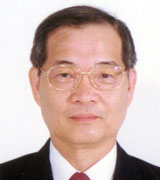
Dr. Ding-Shinn Chen, M.D.
Hepatitis Research Center National Taiwan University Hospital
7, Chung Shan South Road Taipei 10002, Taiwan
Tel : +886 2 2397-0800 #7120
Fax: +886 2 2331-7624 |
|
| 2001 |
Physics |
Dr. Tien-Tzou Tsong |
tsongtt@phys.sinica.edu.tw |
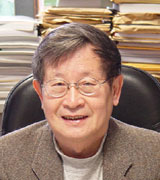
Dr. Tien T. Tsong
223 5th Ave. S, Unit D-303, Kirkland, WA 98033, U.S.A.
Tel : +1 425 983-9118
+886 2 2788-8933
Fax: +886 2 2789-2440 |
Brief Resume:
Dr. Tien T. Tsong specializes in atomic resolution microscopy. He and his team develop advanced field ion microscopes, atom-probe field ion microscopes and scanning tunneling microscopes. They also use these instruments to study the dynamics of atoms on solid surfaces, their interactions, and the formation of small atomic clusters and nanostructures. They also study the new physical properties of these nanostructures. In addition, they have made significant contributions in atomic layer by atomic layer compositional analysis of surfaces of materials.
>> Link to personal website
TOP |
|
| 2004 |
Chemical Sciences |
Dr. Sunney I. Chan |
chans@chem.sinica.edu.tw |
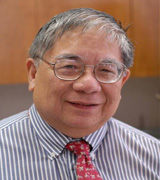
Dr. Sunney I. Chan
Institute of Chemistry,
Academia Sinica
128, Sec. 2, Academia Road, Nankang, Taipei, 11529, Taiwan
Tel : +886 2 2789-8654
+1 626 395-6508
(Caltech)
Fax: +886 2 2783-1237
+1 626 578-0471
|
Brief Resume:
Sunney Chan is Chair Distinguished Research Fellow at Academia Sinica, Taipei, and George Grant Hoag Professor of Biophysical Chemistry, Emeritus at the California Institute of Technology, Pasadena, CA, USA.
After obtaining the Ph.D. degree in physical chemistry at UC Berkeley in 1960 and one year of postdoctoral study in physics at Harvard University, Sunney taught at UC Riverside before joining the faculty at the California Institute of Technology in 1963. At Caltech, Sunney was Assistant Professor of Chemical Physics (1963-64); Associate Professor of Chemical Physics (1964-68); Professor of Chemical Physics (1968-76); Professor of Chemical Physics and Biophysical Chemistry (1976-92); and George Grant Hoag Professor of Biophysical Chemistry (1992-2001). He also served as Executive Office for chemistry in the Division of Chemistry and Chemical Engineering (1977-80; 1989-1994); and Chairman of the Faculty at Caltech (1987-1989). In 1997, Sunney moved to Academia Sinica, where he served as Distinguished Research Fellow (1997-2006); Director of the Institute of Chemistry (1997-1999; 2004-2005), Vice President at Academia Sinica (1999-2003), and Director, National Research Program for Genomic Medicine (2001-2003). Over the years, Sunney has also been visiting professor at Oxford University, UC Berkeley, Stanford University, and the Chinese University of Hong Kong; adjunct professor at National Taiwan University, National Tsing-Hua University, and National Cheng-Kung University in Taiwan; adjunct professor at the Hong Kong Baptist University in Hong Kong. Presently, Sunney is a chair professor in the chemistry department at National Taiwan University (2007-10).
During his tour of duty in Taiwan, aside from rebuilding the Institute of Chemistry in a modern image, Sunney established the Taiwan International Graduate Program and contributed to the development of biotechnology in Taiwan. He helped the National Science Council of Taiwan put together the National Research Program in Genomic Medicine to promote basic and applied research in genomics, proteomics, and bioinformatics within the life science community in Taiwan. He also led the effort to create a Research Center on Genomics at Academia Sinica.
Sunney is a distinguished biochemist. He is a world leader on the applications of physical methods to study the structure and function of biological systems. He is best known for his use of magnetic resonance spectroscopy, both NMR and EPR, to study the base stacking of nucleic acids; the dynamic structure of lipid membranes; structure and function of membrane proteins including cytochrome c oxidase in mitochondria, the chloride/ bicarbonate exchange protein in the erythrocyte membrane, and the methane monooxygenase from methanotrophic bacteria. In recent years, Sunney has also developed ultrafast kinetic methods to monitor the early kinetic events in protein folding. In his research, Sunney has mentored almost 100 Ph.D.s and 60 postdoctoral students.
Sunney has received numerous honors in recognition of his scientific leadership and contributions, including the William C. Rose Award from American Society of Biochemistry and Molecular Biology (2004), election to Academia Sinica (1986) and TWAS (Academy of Sciences for the Developing World) (2004), as well as many named lectureships and several honorary degrees.
>>Link to personal website
TOP |
|
| 2004 |
Astronomy and Space Sciences |
Dr. Chao-Han Liu |
Chliu2@gate.sinica.edu.tw |
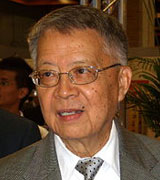
Dr. Chao-Han Liu
Academia Sinica
128, Sec. 2, Academia Road, Nankang, Taipei, 11529, Taiwan
Tel : +886 2 2787-2538
|
Brief Resume:
Chao Han Liu became Vice President of Academia Sinica on October, 2006 after serving as President of the National Central University in Taiwan for 12 years and as Chancellor of the University System of Taiwan for 4 years. He started his academic career at the University of Illinois at Urbana-Champaign in 1965 where he taught Electrical Engineering for 25 years before returning to Taiwan in 1990. He is a radio scientist and an international leader in solar terrestrial physics and global change research.
In 1988, he and his graduate students pioneered the versatile and inexpensive technology known as Computerized Ionospheric Tomography making possible for global monitoring of the ionosphere for space weather with the crucial participation of worldwide solar terrestrial scientists/engineers including many from developing countries. Also in the late 80’s, together with scientists and engineers from JPL, they proposed the GPS radio occultation technique which has now been developed into one of the most forward looking techniques for collecting global weather and climate data, including the ionosphere. He then helped Taiwan plan and launch FORMOSAT – 3 Constellation (COSMIC) mission in 2006 which uses this technique to vastly increase the quantity and quality of the weather and climate data collected on the global scale, thus enhancing the forecast capability and at the same time providing new opportunities for studying the dynamics of the upper atmosphere. Since June 2007, F3 / COSMIC data have been incorporated in the weather forecasting services in most major countries.
He is an internationally recognized leader in Solar Terrestrial Physics. From 1981 to 1999, he played important leadership roles in the Scientific Committee on Solar Terrestrial Physics (SCOSTEP) of ICSU, first as its Scientific Secretary and later as the President. During his tenure, the Committee planned, launched and coordinated three major decade-long international space science programs for solar terrestrial physics, each with the participation of hundreds of scientists all over the world. He played an important role in the development of the Space Program in Taiwan, as one of the original members of the planning committee in the early 90’s and later a member of the steering committee for the first 15 years of the program.
Since the mid-90’s, he led a group of scientists with different disciplinary background to carry out global change research in Taiwan and established Taiwan as a regional leader in this field internationally. He is the Chairman of the Southeast Asia Regional Center for START (SARCS) which coordinates the international global change research for the ten Southeast Asia countries.
During his tenure as the President of the National Central University, he helped transform the university to become one of the top research universities in Taiwan. He was the founding Chancellor of the University System of Taiwan which has become a new model of collaboration among universities in the country. In 2002, he was asked by the Government to co-chair an Inter-Ministerial Committee to draw up a Higher Education Master Plan for Taiwan. The Plan was approved by the Government in 2003 and the recommendations are being implemented.
He is an academician of the Academia Sinica and a member of TWAS.
>> Link to personal website
TOP |
|
| 2004 |
Agricultural Sciences |
Dr. Tuan-Hua David Ho |
tho@sinica.edu.tw |
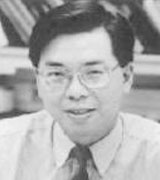
Dr. Tuan-Hua David Ho
Institute of Plant and Microbial Biology, Academia Sinica
128, Sec. 2, Academia Road, Nankang, Taipei, 11529, Taiwan
Tel : +886 2 2787-1090
Fax: +886 2 2782-7954
|
|
| 2004 |
Chemical Sciences |
Dr. Shie-Ming Peng |
smpeng@ntu.edu.tw |
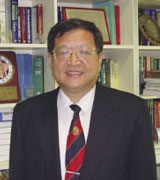
Dr. Shie-Ming Peng
Academia Sinica
128, Sec. 2, Academia Road, Nankang, Taipei, 11529, Taiwan
Tel : +886 2 2789-9901
|
Brief Resume:
Shie-Ming Peng received his PhD from the University of Chicago. After a postdoctoral fellowship at Northwestern University. He became an associate Professor(1976–1980) and a full Professor (1980) of National Taiwan University. He was the Chairman of the Department of Chemistry (1987–1990) and the Vice President of the National Taiwan University (1999–2002). He also served as the President of the Chemical Society in Taipei (2001–2002). In 1998, he was elected as an Academician of Academia Sinica. He is a synthetic and structural coordination chemist. His research is devoted to developing metal string complexes and investigating their application in molecular electronics.
>> Link to personal website
TOP |
|
| 2004 |
Physics |
Dr. Mau-Kuen Wu |
mkwu@phys.sinica.edu.tw |
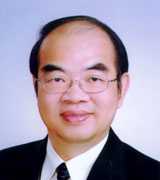
Dr. Mau-Kuen Wu
Institute of Physics, Academia Sinica
128, Sec. 2, Academia Road, Nankang, Taipei, 11529, Taiwan
Tel : +886 2 2789-6716
Fax: +886 2 2788-9827
|
|
| 2005 |
Medical and Health Sciences |
Dr. Chien-Jen Chen |
chencj@gate.sinica.edu.tw |
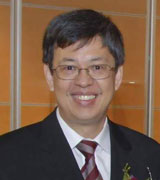
Dr. Chien-Jen Chen
Academia Sinica
128, Sec. 2, Academia Road, Nankang, Taipei, 11529, Taiwan
Tel : +886 2 2789-9407
|
Brief Resume:
Dr. Chien-Jen Chen received his Sc.D. degree from the Johns Hopkins University in 1982, he then returned to National Taiwan University College of Medicine and dedicated himself to epidemiological research for more than two decades since then. He has held a number of faculty positions including Affiliated Professor, Department of Epidemiology and Biostatistics, School of Public Health, Tulane University, U.S.A. and Senior Associate, Department of Epidemiology, School of Public Health, Johns Hopkins University, U.S.A. and Professor, National Taiwan University. He has also served in several government positions including minister of the National Science Council and minister of the Department of Health. Dr. Chen is an internationally well-known environmental epidemiologist. His major contributions are in his pioneering work since the mid-1980s on arsenic poisoning from drinking water. Over the past 2 decades, Dr. Chen has performed a longitudinal cohort study in Taiwan that has provided valuable information regarding the causal relationship between arsenic poisoning and several fatal diseases such as: cancers, vascular diseases, diabetes and cataract. The maximal contamination level of arsenic in drinking water which was set by Dr. Chen’s research team has been adopted by countries in North America, Europe and Asia as their national standard. The impact of his arsenic research is far reaching and has saved lives worldwide. Dr. Chen is also a trailblazer in genetic and molecular epidemiology. He co-authored the very first article in the world on the efficacy of vaccination against cancer. This work spawned a new direction of research in cancer. The series of papers on cancer research that published on international journals have been cited more than 5,000 times. Dr. Chen has contributed a tremendous impact on cancer prevention, early detection and preventive medicine.
>>Link to personal website
TOP |
|
| 2005 |
Chemical Sciences |
Dr. Kopin Liu |
kpliu@gate.sinica.edu.tw |
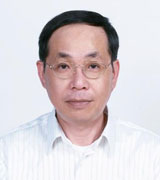
Dr. Kopin Liu
Institute of Atomic and Molecular Sciences, Academia Sinica
128, Sec. 2, Academia Road, Nankang, Taipei, 11529, Taiwan
Tel : +886 2 2366-8259
Fax: +886 2 2363-0578 |
Brief Resume:
Dr. Kopin Liu graduated from National Tsing-Hua University in 1971 and obtained his Ph. D. from Ohio State University of USA in 1977. After postdoctoring with Prof. John C. Polanyi at Univ. of Toronto and Prof. W. Ron Gentry at Univ. of Minnesota, he had devoted himself to scientific researches at Argonne National Laboratory for more than ten years before coming back to the Institute of Atomic and Molecular Sciences of Academia Sinica in Taiwan in 1993. He assumed the Institute directorship in 2001-2004, and is currently a Distinguished Research Fellow. Dr. Liu specializes in chemical dynamics, and is widely recognized as one of the pioneers in combining laser spectroscopy with crossed molecular beam techniques for studying state-to-state reaction dynamics. He is an elected Fellow of the American Physical Society, an Academician of Academia Sinica, and a Fellow of the Academy of Sciences for the Developing World (TWAS). He is also one of the three recipients of the 1st Presidential Science Prize of Taiwan in 2001.
>> Link to personal website
TOP
|
|
| 2005 |
Structural, Cell and Molecular Biology |
Dr. Andrew H.-J. Wang |
ahjwang@gate.sinica.edu.tw |
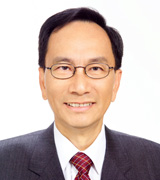
Dr. Andrew H.-J. Wang
Vice President Office, Academia Sinica
128, Sec. 2, Academia Road, Nankang, Taipei, 11529, Taiwan
Tel : +886 2 2789-9407
|
Brief Resume:
Dr. Andrew H.-J. Wang is currently Vice President of Academia Sinica. He received his BS and MS degrees from National Taiwan University, and PhD degree in Chemistry from University of Illinois-Urbana. He was Professor of Biophysics/Biochemistry/Chemistry at the University of Illinois-Urbana, USA from 1988 to 2000.
He is a member of Academia Sinica, Taipei (2000) and a fellow of the Third World Academy of Sciences (TWAS) (2005) and A-IMBN (2007). He is also a recipient of Science and Engineering Achievement Award, Taiwanese-American Foundation (2007) and National Innovation and Invention Award, Ministry of Economic Affairs, ROC (2009). Dr. Wang is actively involved in the advancement of sciences. He served as Editor for EJB and on Advisory Board of NAR. At present, he is Council Member of Human Proteomics Organization (HUPO). As the President of three societies (Taiwan Society of Biochemistry and Molecular Biology (2001-2004, member IUBMB), Biophysical Society of ROC (2001-2007, member IUPAB) and Taiwan Proteomics Society (2003-2006, member AOHUPO)), he has successfully organized several major international conferences.
Dr. Wang is a renowned structural biologist and has used interdisciplinary approaches, primarily high-throughput synchrotron protein crystallography and proteomics, to study complex biological systems such as structural enzymology, protein- and anticancer drug- DNA interactions, and disease markers. The knowledge is further applied to drug design in his research.
His research has been seminal and productive, with more than 370 refereed papers in major journals. Highlights include:
• He discovered the novel left-handed Z-DNA in 1979, which ushered in a new field of novel DNA structures.
• He solved the structures of many clinically important anticancer drug-DNA complexes, thus contributed critically in the understanding on their mode of actions and rational design of new drugs.
• He contributed in the structure-function of DNA-binding proteins and novel enzymes (e.g., prenyltransfereases, metalloproteinases, SARS 3CL protease) for drug discovery.
>> Link to personal website
TOP |
|
| 2005 |
Agricultural Sciences |
Dr. Su-May Yu |
sumay@imb.sinica.edu.tw |
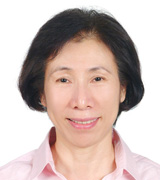
Dr. Su-May Yu
Institute of Molecular Biology, Academia Sinica
128, Sec. 2, Academia Road, Nankang, Taipei, 11529, Taiwan
Tel : +886 2 2788-2695
Fax: +886 2 2788-2695 |
Brief Resume:
Dr. Su-May Yu received her Ph.D. degree in plant pathology in University of Arkansas, USA. She then did her postdoctoral trainings in the Cold Spring Harbor Laboratory and University of Rochester, and served as a research associate in Cornell University, New York. She returned to Taiwan and established her career in the Institute of Molecular Biology (IMB), Academia Sinica, in 1989. She acted as the Deputy Director of IMB during 1999-2001. Currently, she is a Distinguished Research Fellow of IMB and adjunct professors of several national universities in Taiwan.
Dr. Yu has been using rice, the most important domestic and worldwide crop, as a research target since she joined IMB. For the last 20 years, her research has focused on the molecular mechanism of sugar regulation on plant growth. She has published many original and innovated papers in high impact journals, been invited to deliver 36 seminars in international conferences and foreign research institutes.
Dr. Yu has also developed many innovative biotechnologies to improve functions of rice. In order to promote Taiwanese rice functional genomics research to become a leader in the world, Dr. Yu led a research team to establish a large rice mutant population and database that have been very useful for functional studies of rice genes and are open to the science community worldwide. Recently, she received funding from the Bill & Melinda Gates Foundation for identification of rice mutants with enhanced photosynthesis efficiency using her rice mutant library.
Dr. Yu has received many national and international awards, including Distinguished Research Award of National Science Council (1995-1996, 1997-1998, 1999-2000); The First Young Scientist Research Award of Academia Sinica (1996); The 8th Ho, Jin-Dwei Distinguished Honorary Award in Biological Sciences (1998); Distinguished Technology Transfer Award of National Science Council (2002); Merit Research Award of National Science Council (2003-2007); Outstanding Achievement Award in Science and Technology of Executive Yuan (2003); Academic Award of Ministry of Education (2004); Frontier Science Research Award of National Science Council (2005-2010); Elected member of the Academy of Sciences for the Developing World (formerly, Third World Academy of Sciences, TWAS) (2005); The 22th Khwarizmi International Award (KIA), by the Iranian Research organization for Science and Technology (2009); The Best Woman Scientist for Innovation Award, by the World Association of Industrial and Technological Research Organization (2009); Eminent Researcher of the National Science Council (ROC)-National Research Council (NRC, Canada) Eminent Researchers Program (2009); The 16th TECO Award – Chemical Engineering/ Biology/Medical Engineering Fields (2009).
Dr. Yu’s current research has been focused on: (1) Mechanisms of sugar regulation on plant growth and yield – Deciphering the mechanism of sugar signaling in plants could lead to the establishment of strategies for increasing crop productivity through biotechnology; (2) Rice functional genomics research – Function of genes identified through the rice functional genomics research could be applied for conferring disease, insect, flooding, drought, salinity and temperature stress tolerances to cereal crops; (3) Conversion of agriculture wastes into biofuel – Many agriculture wastes have caused serious pollutions worldwide. Biotechnologies could convert these wastes into biofuels, which not only protect environments but also provide renewable energy.
>> Link to personal website
TOP
|
|
| 2006 |
Medical and Health Sciences |
Dr. Yuan-Tsong Chen |
Chen0010@ibms.sinica.edu.tw |
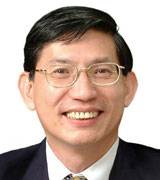
Dr. Yuan-Tsong Chen
Institute of Biomedical Sciences, Academia Sinica
128, Sec. 2, Academia Road, Nankang, Taipei, 11529, Taiwan
Tel : +886 2 2789-9104
Fax: +886 2 2782-5573 |
Brief Resume:
Professor Yuan-Tsong (Y-T) Chen received his MD degree from National Taiwan University and PhD from Columbia University. He is currently the Director of the Institute of Biomedical Sciences, Academia Sinica, Taiwan and Professor of Pediatrics and Genetics at Duke University Medical Center. Professor Chen is a physician/scientist, recognized for his work on translational research on human genetic disorders. His research leads to the development of now standard therapies for two devastating inherited metabolic diseases: a simple and effective cornstarch therapy for severe hypoglycemia in glycogen storage diseases and an enzyme replacement therapy, the first ever treatment, for a debilitating, progressive and often fatal myopathy called Pompe disease. Professor Chen has also identified the genetic basis and developed DNA-based diagnosis for several major heritable diseases, including type III glycogen storage disease, and more recently, his team has uncovered genes/SNPs associated with drug-induced Stevens-Johnson syndrome and warfarin sensitivity. The pharmacogenomic studies of adverse drug reactions paved the way for personalized medicine in preventing drug toxicity with a gene test. Professor Chen is an elected member of Academia Sinica and an elected member of the Academy Sciences for the Developing World.
>> Link to personal website
TOP |
|
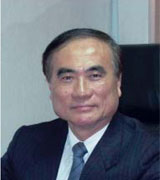
Dr. Michael M.C. Lai
Institute of Molecular Biology, Academia Sinica
128, Sec. 2, Academia Road, Nankang, Taipei, 11529, Taiwan
Tel : +886 2789-2365
|
Brief Resume:
Dr. Lai is a world-renowned molecular virologist, with special expertise in the studies of the RNA viruses. He received an M.D. degree from National Taiwan University and a Ph.D. degree in Molecular Biology from the University of California at Berkeley in1973. Upon his graduation, he joined the faculty at the University of Southern California (USC) and spent his entire career at USC until his return in 2003 to Taiwan to assume the position of Vice President and Distinguished Research Fellow of Academia Sinica. In his 30-plus years of academic career, Dr. Lai established himself as a foremost virologist on the international stage. He has excelled in not just one virus, but in three different disparate and medically important viruses, including coronavirus, hepatitis delta virus (HDV) and hepatitis C virus (HCV). He has been regarded as a pioneer and a leading investigator in the coronavirus and HDV research in the world for the past twenty years. He has made numerous seminal contributions to the understanding of the molecular biology and pathogenesis of the coronavirus, which causes Severe Acute Respiratory Syndrome (SARS) among other diseases, and is an author of many textbook chapters on coronavirus. In 2007 he became the President of National Cheng Kung University, the second largest public university in Taiwan.
Dr. Lai has been recognized by many awards and stellar standings in professional societies. He was elected to the membership of Academia Sinica, American Academy of Microbiology and TWAS(The Academy of Sciences for the Developing World). Furthermore, he has served as an editor of the journal Virology for 13 years, the first Asian to have done so. He has served on the editorial boards of many other scientific journals. From 1990-2003, he was appointed as a Howard Hughes Medical Institute Investigator. He received Lifetime Achievement Awards from USC in 2008 and from Society of Chinese Bioscientists in America in 2009.
Dr. Lai is a biomedical leader in Taiwan. He directed National Research Program for Genomic Medicine from 2004-2007. He also serves on the Board of Trustees at National Health Research Institute, Board of Trustees at Industrial Technology and Research Institute. He is currently the Editor-in-Chief for Journal of Biomedical Science.
>>Link to personal website
TOP |
|
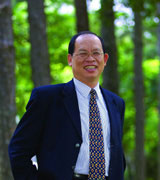
Dr. Lou-Chuang Lee
National Science Council
106, Sec.2, HePing E. Road, Taipei 106, Taiwan
Tel : +886 2 2737-7501
Fax: +886 2 2737-7668 |
Brief Resume:
Professor Lou-Chuang Lee was born on April 20, 1947. He received a B.S. degree in physics from National Taiwan University in 1969, and M.S. and Ph.D. degrees in physics from the California Institute of Technology in 1972 and 1975, respectively. He specializes in space science and plasma physics. From 1975 to 1995, he performed advanced research at the NASA/Goddard Space Flight Center and served as a professor at the University of Maryland and University of Alaska. Upon returning to Taiwan in 1995, Prof. Lee joined the faculty of Department of Physics at the National Cheng Kung University, and also served as the Dean of the College of Science. He was appointed the chief scientist at National Space Program Office in 1997, and made director of National Space Program Office in 2001. Since that time he has led the science and engineering teams implementing the FORMOSAT-2 and FORMOSAT-3 programs. In 2003, he became the first President of the National Applied Research Laboratories and the President of National Central University in 2006. In 2008, he was appointed the Minister of National Science Council.
Prof. Lee has received many international as well as national awards, including the Toray Science Foundation Fellow, the Terris Moore Award in space physics, the Outstanding Faculty Performance Award, the Fullbright Scholar Award, the Emil Usibelli Distinguished Research Award, the Foundation for the Advancement of Outstanding Scholarship Award, the Ministry of Education's Outstanding Academic Award, the World Technology Network Fellow, Academician of Academia Sinica, TWAS Fellow, and IAA (International Academy of Astronautics) Member.
Prof. Lee is a well-known space physicist. He has published more than 200 scientific papers as well as three academic monographs. During his career, Prof. Lee developed several new theories to explain observed space phenomena. His major research achievements include: (a) the turbulence spectrum of interstellar medium, (b) the cyclotron maser theory for the generation of auroral kilometric radiation, (c) the multiple X-line reconnection model for magnetic flux transfer events, (d) the formation mechanism of solar prominences, (e) a new mechanism for solar coronal heating, and (f) the discovery of "gigantic jets" in the Earth’s upper atmosphere.
>> Link to personal website
TOP |
|
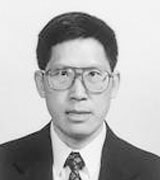
Dr. Tai-Ping Liu
Institute of Mathematics, Academia Sinica
128, Sec. 2, Academia Road, Nankang, Taipei, 11529, Taiwan
Tel : +886 2 2785-1211 #351
Fax: + 886 2 2782-7432
|
|
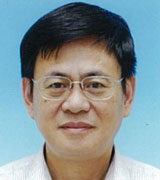
Dr. Chien-Te Chen
National Synchrotron Radiation Research Center
101, Hsin-Ann Road, Hsinchu Science Park, Hsinchu 30076, Taiwan
Tel : +886 3 578-0281 #7308
Fax: +886 3 578-3813 |
Brief Resume:
Dr. Chen obtained his Ph.D. in 1985 at University of Pennsylvania, USA. He was an experimental physicist at the AT&T Bell Labs, USA in 1985-1995, doing condensed matter research. In 1995, Dr. Chen returned to Taiwan and has worked for the National Synchrotron Radiation Research Center (NSRRC) since then. He served as the Director of NSRRC for nine years and is now a distinguished scientist there and the Chief Advisor to the “Taiwan Photon Source Synchrotron Construction Project”. Dr. Chen’s research areas are the electronic and magnetic structure of matter, soft-x-ray spectroscopy and scattering, and synchrotron radiation instrumentation. During his stay at Bell Labs, Dr. Chen invented and constructed the world’s first high resolution, high transmission synchrotron radiation soft-x-ray beamline, dubbed the Dragon, which design has now been adopted by 25 synchrotron radiation centers worldwide. Facilitated by the Dragon beamline, he has made many innovations in soft-x-ray spectroscopy and scattering techniques, which have become powerful tools for probing the electronic and magnetic structure of matter and been extensively utilized by science and technology community. Dr. Chen and collaborators completed high-accuracy experiments on high temperature superconducting cuprates, alkali doped C60, colossal magnetoresistance manganese oxides, and magnetic multilayers, obtaining important data on the electronic and magnetic structure of these novel materials and providing reliable microscopic foundation for new theories yet to come. These works have received much attention and been widely cited. Back in Taiwan, Dr. Chen has built a world’s first-rated soft-x-ray research group and experimental facility at NSRRC. Together with his domestic and foreign collaborators, he completed many decisive experiments that provide new insights into condensed matter physics and published dozens of papers in the most influential physics journal. He has served in the Science Advisory Committees of synchrotron radiation centers in USA, China, Italy, and Korea as well as in the International Advisory Committees of major international conferences.
>>Link to personal website
TOP |
|
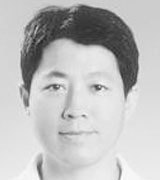
Dr. Typhoon Lee
Institute of Earth Sciences, Academia Sinica
128, Sec. 2, Academia Road, Nankang, Taipei, 11529, Taiwan
Tel : +886 2 2783-9910
Fax: +886 2 2783-9871 |
Brief Resume:
B.S. in physics, National Taiwan Normal University (1959). M.S. in physics, the Pennsylvania State University (1964). Ph.D. in physics, the Pennsylvania State University (1966). Postdoctor, Penn State Univ. (1967-1969). Assistant professor to Distinguished Professor of Physics, the Pennsylvania State University (1969 to 1993). Research Fellow and Director, Institute of Physics, Academia Sinica (1990-1993). Distinguished Research Fellow and Director, Institute of Physics, Academia Sinica (1993-1999). Distinguished Research Fellow, Institute of Physics, Academia Sinica (1999- Present). Joint Professor of Department of Physics, National Taiwan University; Department of Electronics, Beijing University. Visiting Professor, Department of Chemistry, Cambridge University; Dep't of Phys., EPFL etc. Editorial Board: Nanotechnology (Inst. Phys. Publ., UK, Sept. 02 to Oct. 05); International J. Nanoscience (WS, Singapore) President, Association of Asia Pacific Physical Societies (AAPPS) (2005-2007)
>> Link to personal website
TOP |
|
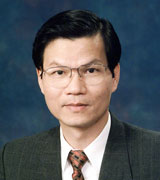
Dr. Chi-Huey Wong
President Office, Academia Sinica
128, Sec. 2, Academia Road, Nankang, Taipei, 11529, Taiwan
Tel : +886 2 2789-9400
Fax: +886 2 2785-3852 |
Brief Resume:
Dr. Chi-Huey Wong received his Ph.D. in Chemistry from Massachusetts Institute of Technology, USA. He was professor of several institutes, included: Texas A&M University, The Scripps Research Institute, National Taiwan University. He was appointed as leader in several academic organizations around the world, such as the head of Frontier Research Program on Glycotechnology, Institute of Physical and Chemical Research (RIKEN), Japan, and the Scientific Advisor for Max-Planck-Institute at Dormund, Germany. Since he came back to Taiwan, He was appointed as the Director of Genomic Research Center, Academia Sinica. In 2006,Dr. Wong was elected as the President of Academia Sinica.
Dr. Wong has been honored by a large number of awards and fellowships for his contribution in Chemistry. The fellowships include: the Academician of Academia Sinica, the member of the American Academy of Arts and Sciences, member of the US National Academy of Sciences and TWAS Member.
Dr. Wong’s research interests are in the areas of bioorganic and synthetic chemistry and biocatalysis, including synthesis of complex carbohydrates, glycoproteins and small-molecule probes for the study of carbohydrate-mediated biological recognition, post-translational glycosylation, and drug discovery. He is the author and co-author of over 600 publications, 60 patents, and four books, all related to enzyme catalysis and chemical biology. His pioneering work on programmable chemical and enzymatic synthesis of complex carbohydrates has provided a powerful platform for use to tackle important problems in the immune system, bacterial and viral infections, and cancer metastasis and has demonstrated its significance in drug discovery.
>> Link to personal website
TOP |
|
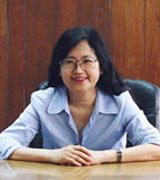
Dr. Yan-Hwa Lee Wu
National Chiao Tung University
1001 University Rd.,Hsinchu 30010,Taiwan
Tel : +886 3 571-8083
Fax : +886 3 572-1500 |
Brief Resume:
Lee Wu obtained her Ph. D.at U. of Tennessee in 1976. She is President, Distingushed Chair Professor of Biochemistry and Molecular Biology at National Yang-Ming University, Taiwan. Her previous positions include: Chairmanof Institute of Biochemistry, Dean of Academic Affair, Acting President at Yang-Ming University. She has awarded Outstanding Research Award and Distinguished Investigator Award from NSC, Distinguished Academic Award and National Chair Professor from MOE, Taiwan. She is also the Section Chair for Infectious Disease in National Research Program for Genomic Medicine. She has been serving as the President of the Chinese Society for Cellular and Molecular Biology at Taiwan (2005-2007) and President of the Taiwan Society for Biochemistry and Molecular Biology since 2007. She is an Academician of Academia Sinica, Taiwan (2000).
>> Link to personal website
TOP |
|
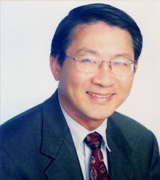
Dr. Der-Tsai Lee
National Chung Hsing University
250 Kuo Kuang Rd., Taichung 402, Taiwan
Tel : +886 2 22840201
Fax: +886 2 2782-4814 |
Brief Resume:
Der-Tsai Lee received his B.S. degree in Electrical Engineering from National Taiwan University in 1971, and the M.S. and Ph. D. degrees in Computer Science from the University of Illinois at Urbana-Champaign in 1976 and 1978 respectively.
Dr. Lee has been with the Institute of Information Science, Academia Sinica, Taiwan, where he is a Distinguished Research Fellow and Director since July 1, 1998. Prior to joining the Institute of Information Science, he was a Professor of the Department of Electrical and Computer Engineering, Northwestern University, where he has worked since 1978. He is also a Professor of Computer Science in the Dept. of Computer Science and Information Engineering, and the Graduate Institute of Electronics Engineering, National Taiwan University; Chair Professor of National Taiwan University of Science and Technology and of National Chung-Hsing University. His research interests include design and analysis of algorithms, computational geometry, VLSI layout, web-based computing, algorithm visualization, software security, bio-informatics, and digital libraries. In addition to doing basic research in algorithmics for geometric computing and graph-theoretic problems, he is interested in building a web-based collaborative problem-solving environment (http://www.opencps.org) for geometric computing and algorithm benchmarking.
Dr. Lee is Deputy Program Director of the Taiwan e-Learning and Digital Archives Program (TELDAP http://teldap.tw), a national science and technology program sponsored by the National Science Council, Taiwan. He is also Chair of the Committee on Data for Science and Technology (CODATA), Academia Sinica. Presently Dr. Lee is Distinguished Research Fellow of the Institute of Information Science, and Executive Director of Taiwan Information Security Center, Research Center for Information Technology Innovation, Academia Sinica.
He is Fellow of Fellow of IEEE, Fellow of ACM, Past President of IICM, Member of Academia Sinica, Member of the Academy of Sciences for the Developing World (TWAS), Recipient of Humboldt Research Award from the Alexander von Humboldt Foundation, Germany, and of Bronze Science Medal from the National Science Council, Taiwan.
>>Link to personal website
TOP |
|
| 2008 |
Medical and Health Sciences |
Dr. Pan-Chyr Yang |
pcyang@ntu.edu.tw |
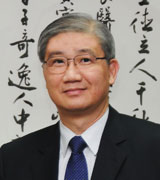
Dr. Pan-Chyr Yang
Office of the Dean,
National Taiwan University College of Medicine
1, Section 1, Jen-Ai Road Taipei 100, Taiwan
Tel : +886 2 2321-2258
Fax: +886 2 2322-4793 |
Brief Resume:
Dr. Yang currently is the Professor of the Department of Internal Medicine and Dean of the National Taiwan University College of Medicine. His major research interests are pulmonary and critical care medicine, lung cancer genomics and molecular biology as well as microarray gene expression technology. He is awarded as Academician of Academia Sinica in 2006 and the Academy of Sciences for the Developing World in 2008 because of his contributions in lung cancer translational research. His research group has discovered novel genes and pathways that associated with lung cancer pathogenesis and progression. They also identified specific gene expression and microRNA signatures that can predict the treatment outcome and may be beneficial for personalized therapy of lung cancer patients.
>> Link to personal website
TOP |
|
| 2009 |
Structural, Cell and Molecular Biology |
Dr. Che-Kun SHEN |
ckshen@imb.sinica.edu.tw |
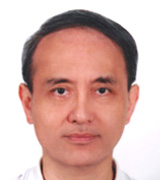
Dr. Che-Kun SHEN
Institute of Molecular Biology,
Academia Sinica
128, Sec. 2, Academia Road, Nankang, Taipei, 11529, Taiwan
Tel : +886 2 2782-4188
|
Brief Resume:
Fellow, Elected 2009- Section 2-Structural, Cell and Molecular Biology. Born 29 July 1949 in Taipei, Taiwan, ROC. SHEN is now a Distinguished Research Fellow at the Institute of Molecular Biology, Academia Sinica, Adjunct Professor of the National Taiwan University and National Yang Ming University, and Professor Emeritus of UC Davis. He obtained his Chemistry PhD in 1977 from UC Berkeley, received postdoctoral training at California Institute of Technology, and served as a Genetics faculty at UC Davis from 1981-1999. He has made important contributions in the field of gene regulation, epigenetics, and more recently molecular/ cellular neuroscience. He has received a Research Career Development Award from NIH of US and the Frontier of Science Award from the National Science Council of Taiwan. He is now an Investigator Awardee of the Academia Sinica and a PI of the Genomic Medicine Unit of Asia e-IMBL. He is also an elected Fellow of the American Association for the Advancement of Science (AAAS) and an Academician of the Academia Sinica.
>> Link to personal website
TOP |
|
| 2009 |
Biological Systems and Organisms |
Dr. Wen Hsiung LI |
whli@sinica.edu.tw |
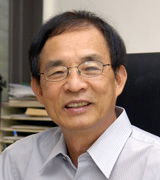
Dr. Wen-Hsiung Li
Biodiversity Research Center, Academia Sinica
128, Sec. 2, Academia Road, Nankang, Taipei, 11529, Taiwan
Tel : +886 2 2789-9930#207
|
Brief Resume:
Dr. Wen-Hsiung Li’s research interests include evolutionary genomics, molecular evolution, bioinformatics and computational biology, population genetics, and human genetics.
As a Taiwan-born scientist, he received his B.S. in civil engineering from Chung-Yuan College of Sciences and Engineering in 1965 and a M.S. in geophysics from National Central University in 1968. In 1972, he received Ph.D. degree in the field of applied mathematics from Brown University. From 1972 to 1973 he was a post-doctoral researcher at the University of Wisconsin Madison (genetics), working with James F. Crow. In 1973 he moved to the University of Texas Health Science Center - Houston, where he went from assistant professor to professor. In 1999, Dr. Li joined University of Chicago faculty and was the George Beadle Professor. In 2004, He was named the first James D. Watson Distinguished Service Professor.
Dr. Li has been honored by research awards and fellowships for his outstanding accomplishments. He is the recipient of a 2003 Balzan Prize for Genetics and Evolution from the International Balzan Foundation. In 2008, he received the inaugural HUGO/Chen Award for Distinguished Academic Achievement in Human Genetic and Genomic Research. He is a fellow of both the National Academy of Sciences, USA, and the American Academy of Arts and Sciences, an Academician of Academia Sinica and a TWAS member. He was the President of the Society for Molecular Biology and Evolution in the year of 2000. He has been serving as editor or associate editor of many prestigious international journals.
Dr. Li has been working at the Genomics Research Center, Academia Sinica since 2004, and is currently the Distinguished Research Fellow and Director of the Biodiversity Research Center.
>>Link to personal website
TOP |
|
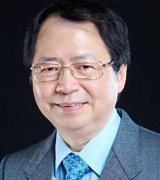
Dr. Lih J. Chen
Department of Materials Science and Engineering, National Tsing Hua University,
101, Sec 2, Kuang-Fu Rd., Hsinchu 30013, Taiwan
Tel : +886 3 571-5131#62001
Fax: +886 3 571-0582 |
Brief Resume:
Professor Lih. J. Chen is Deputy Minister of National Science Council and Ministry of Education National Chair Professor at the Department of Materials Science and Engineering (MSE), National Tsing Hua University, Taiwan. He received B.S. degree in Physics from National Taiwan University in 1968 and Ph.D. degree in Physics from University of California, Berkeley in 1974. He became a professor at the National Tsing Hua University in 1979 and continued on to become the MSE Department Chairman and Dean of the College of Engineering. From 2006 to 2008, he served as the Vice Chancellor for Research and Development, University System of Taiwan. His professional service included the President of Materials Research Society of Taiwan and Microscopy Society of Taiwan, Second Vice President, International Union of Materials Research Societies and Editor of Materials Chemistry and Physics. Professor Chen has conducted extensive research on integrated circuits thin film materials over almost three decades. In recent years, he has focused on the low-dimension nanostructured materials, particularly nanoscale metal silicides.
Professor Chen has won almost every major award and prize from National Science Council and Ministry of Education in Taiwan. In 1998, he was elected to be the Outstanding Scholarship Foundation Chair (1998-2003, 2006-2011) and Ministry of Education National Chair Professor (1998-2001, 2001-2004, lifetime honor) and member of Asian Pacific Academy of Advanced Materials. In recognition of his outstanding research, Tsing Hua University awarded him the Tsing Hua Chair Professor of Engineering in 2003 and Distinguished Chair Professor in 2006. He was elected to be a member of Academia Sinica (Academy of Sciences, Humanities and Social Sciences in Taiwan) in 2006. He received William Hume-Rothery Award from the Materials, Minerals and Metallurgy Society (TMS) in 2008, elected to be a fellow of Academy of Sciences of Developing World in 2009. He is scheduled to receive the Electronics and Photonics Division Award from the Electrochemical Society in 2010.
>> Link to personal website
TOP |
|
| 2010 |
Structural, Cell and Molecular biology |
Dr. Meng-Chao Yao |
mcyao@imb.sinica.edu.tw |
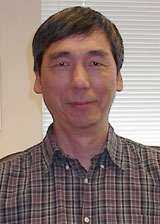
Dr. Meng-Chao Yao
Institute of Molecular Biology, Academia Sinica
128, Sec. 2, Academia Road, Nankang, Taipei, 11529, Taiwan
Tel : +886 2 2782-1436
Fax: +886 2 2788-4177 |
Brief Resume:
Dr. Yao was born and raised in Taiwan. He received his bachelor degree in Zoology from National Taiwan University in 1971 before going to the University of Rochester for graduate training, where he received his Ph.D. degree in Biology in 1975, and went on to Yale University for Postdoctoral training with Dr. Joseph Gall. He became an assistant professor of Biology at Washington University in St. Louis in 1978 and was promoted to associate professor (with tenure) in 1984. In 1986 he moved to Fred Hutchinson Cancer Research Center as a Member of Basic Sciences. In 2004 he returned to Taiwan to become Director of the Institute of Molecular Biology in Academia Sinica where he remains today.
Dr. Yao is interested in biological processes at the cellular and molecular level. He has chosen Tetrahymena as the primary model organism for his investigations into genome organization and stability. He discovered programmed DNA rearrangements in this organism and elucidated their molecular mechanisms. They are closely linked to RNA interference and apparently serve as a genome surveillance system against invading genetic agents. His study of gene amplification in Tetrahymena led to the discovery of a conserved mechanism of palindromic DNA formation, which serves as the first step in gene amplification in eukaryotes including human cancer cells. He was the first to develop a DNA transformation method for this orgnism, which was among the first in protozoa. His impacts are most apparent in the fields of gene amplification, genome rearrangements and ciliate molecular biology.
>> Link to personal website
TOP |
|
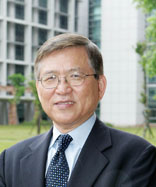
Dr. Kenneth Kun-Yu Wu
National Health Research Institutes (NHRI)
35, Keyan Road, Zhunan Township, Miaoli 35053, Taiwan
Tel : +886 37-246-166 #31000
Fax: +886 37-586-402 |
Brief Resume:
Born in Kaohsiung, Taiwan, Professor Wu was graduated from National Taiwan University Medical School. He received M.S. from Yale University and Ph.D. from University of London. He completed Internal Medicine Residency and Hematology-Oncology Fellowship from University of Iowa College of Medicine. He was an endowed chair professor and Director of Hematology at University of Texas Medical School and M.D. Anderson Cancer Center at Houston. He served as Distinguished Fellow and Director at Institute of Biomedical Sciences, Academia Sinica and currently Distinguished Investigator and President, National Health Research Institutes, Distinguished Chair Professor, National Taiwan University and National Tsing-Hua University. He is a member of distinguished societies including Academia Sinica, Association of American Physicians, American Society of Clinical Investigation, European Academy of Sciences and TWAS. He received Sanofi Prize from ISTH/Sanofi Foundation and President Award from University of Texas at Houston. He was honored by the mayor of Houston with proclamation of December 9, 1994 as Kenneth K. Wu, M.D. Day.
>> Link to personal website
TOP |
|
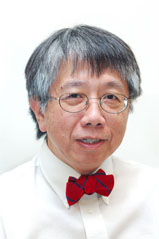
Dr. Paul T. P. Ho
Institute of Astronomy and Astrophysics, Academia Sinica
P.O. Box 23-141, Taipei, 106 Taiwan
Tel : +886 2 2366-5300
Fax: +886 2 2367-8405 |
Brief Resume:
Dr. Paul T. P. Ho obtained his degrees in physics from the Massachusetts Institute of Technology in 1972 and 1977.? He was Postdoctoral Research Fellow at the University of Massachusetts, Amherst and the University of California, Berkeley.? He was on the faculty of the Harvard University at the Department of Astronomy between 1982 to 1990.? He then became Senior Astrophysicist at the Smithsonian Astrophysical Observatory (SAO) since 1989.
Dr. Ho is a founding member of the advisory panel of the Academia Sinica Institute of Astronomy and Astrophysics (ASIAA) Preparatory Office in Taiwan. He was appointed Distinguished Research Fellow and Acting Director at ASIAA in 2002 - 2003. He serves as Director of ASIAA since September of 2005. All three major ASIAA telescope projects: the SAO/ASIAA Submillimeter Array (SMA), The Yuan Tseh Lee Array for Microwave Background Anisotropy (AMiBA) and The Taiwan-America Occultation Survey (TAOS) were brought into operations during this time. ASIAA also became a full institute in June 2010.? Dr. Ho also serves as Adjunct or Joint Professor at the National Taiwan University, National Central University and National Tsing Hua University in Taiwan.
>> Link to personal website
TOP |
|
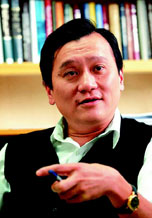
Dr. Cyrus C. Y. Chu
Institute of Economics, Academia Sinica
128 Academia Road, Section 2, Nankang, Taipei 115, Taiwan
Tel : +886 2-27822791#521
|
Brief Resume:
Born in 1955, Professor Cyrus C. Y. Chu received his B.S. from Department of Commerce, National Taiwan University in 1978, and Doctorate in Economics from University of Michigan in 1985. He became a professor in National Taiwan University in 1989, and served as research fellow in Institute of Economics, Academia Sinica.
A world-wide leading scholar in demographic economics, Professor Chu has analyzed the population problem based on rich classifying criteria such as income, occupation, sex and bequests. He has also made significant innovations in criminal sanction, legal procedure, punitive damages, constitutional philosophy and other topics. An Academician of Academia Sinica, he has won the National Science Council of Taiwan’s Distinguished Research Awards, and the Presidential Science Award of Taiwan.
>> Link to personal website
TOP |
|

Dr. Ovid J.-L. Tzeng
Institute of Linguistics, Academia Sinica
128, Section 2, Academia Road 115, Taipei,
Taiwan
Tel : +886 2 27880058#4011
|
|
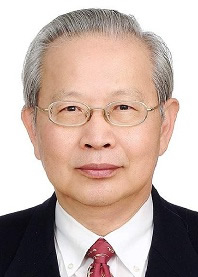
Dr. Wen-Chang Chang
Taipei Medical University
250, Wusing Street Taipei 11031
Taiwan
Tel :+886 2 2736-1661#3431
Fax: +886 2 6638-3879
|
Brief Resume:
Born in Kaohsiung, Professor Chang was graduated from Department of Pharmacy, Taipei Medical College. He received M.S. and Ph.D. in Pharmaceutical Sciences from University of Tokyo, Japan, and performed post doctoral research at National Institutes of Health (Bethesda) and University of Kentucky, USA. He initiated his own research line in 1983 upon return to National Cheng Kung University Medical College as Professor and Chairman of the Department of Pharmacology. He was then appointed as Associate Dean of Medical College, and Dean of College of Bioscience and Biotechnology. In 2007, he became Distinguished Chair Professor of University. He was appointed as Deputy Minister of the National Science Council in 2008, and moved to Taipei Medical University as a Chair Professor in 2011.
His research interest is to study the biosynthesis and functional role of prostaglandins in inflammation and tumorigenesis, and to investigate the functional role of transcription factor Sp1 in gene regulation in inflammation and tumorigenesis. He was elected as Academician of Academia Sinica and TWAS Fellow. He received Academic Award from Ministry of Education (MOE) due to his distinguished research performance, and was awarded as the National Chair Professor from MOE.
>> Link to personal website
TOP |
|
Dr. Pei-Jer Chen
Graduate Institute of Clinical Medicine, College of Medicine, National Taiwan University
No.7.Chung San South Road, Taipei 10002
Taiwan
Tel :+886 2 23123456 # 7072
|
|
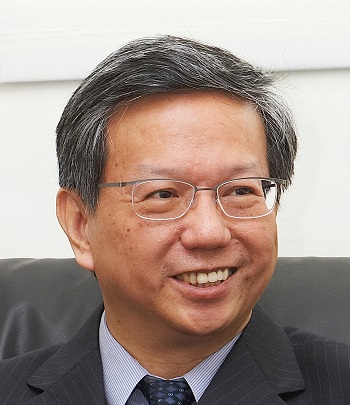
Dr. Yuan-Pern Lee
Department of Applied Chemistry and Institute of Molecular Science, National Chiao Tung University
Science Building 2, 1001 Ta Hsueh Road, Hsinchu, Taiwan 300
Tel :+886 3 513-1459
Fax: +886 3 571-3491
|
Brief Resume:
B.S. in Chemistry, National Taiwan University (1973); Ph.D. in Chemistry, University of California, Berkeley (1979). Research associate at Aeronomy Laboratory, NOAA*Environmental Research Laboratories, USA (1979-81); Associate Professor (1981-84) and Professor (1985-2004), Department of Chemistry, National Tsing Hua University (NTHU), Taiwan. Chair Professor, Department of Applied Chemistry, National Chiao Tung University (NCTU) (2004-). Adjunct Research Fellow, Institute of Atomic & Molecular Sciences, Academia Sinica (1988-). Director of NSC Regional Instrument Center at NTHU (1991-2003); director of Institute of Molecular Science (2004-2007); dean of College of Science at NCTU (2005-2008); director of Center for Interdisciplinary Science, NCTU (2006-).
His research interest includes spectral, kinetic, and dynamic studies of free radicals and unstable species that are important in combustion, atmospheric, or planetary chemistry, using techniques such as time-resolved FTIR emission/absorption, cavity ringdown, matrix-isolation, IR-VUV (1+1) ionization/time-of-flight detection, laser-induced fluorescence, four-wave mixing, ultrafast transient absorption, and VUV absorption or photoionization.
He was elected as a member of Academy of Sciences for the Developing World (TWAS) in 2011, an Academician of Academia Sinica in 2008, a National Chair Professor, Ministry of Education, Taiwan (1997-2000, 2000-2003, lift-term afterwards), and fellow of American Physical Society in 1999. Other awards include Outstanding Scholarship, Foundation for the Advancement of Outstanding Scholarship, Taiwan (1995-2000, 2003-2008, 2008-2013), Special Achievement Award, Phi Tau Phi Scholastic Honor Society (2011), APA Award, Asian and Oceanian Photochemistry Association (2010), Outstanding Research Award, National Science Council, Taiwan (1989-1996), Academic Medal, Chinese Chemical Society(1996), 16th Wu Shan-Liang Award (1993), Academic Achievement Award in Science, Ministry of Education, Taiwan (1990), and Academic Award of Sun Yat-Sen Academic Cultural Foundation (1988).
>>Link to personal website
TOP |
|
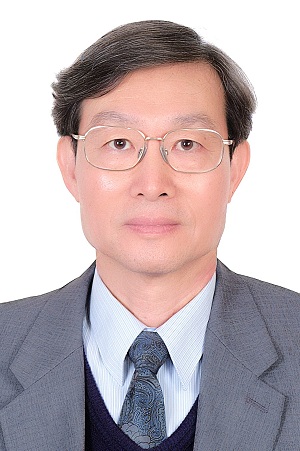
Dr. Shih-Lin Chang
National Synchrotron Radiation Research Center
101, Hsin-An Road, Hsinchu Science Park Hsinchu 30076, Taiwan
Tel : +886 3 578-3825
Fax: +886 3 578-4498
|
Brief Resume:
Professor Chang is Director of National Synchrotron Radiation Research Center and Honorary Chair Professor of National Tsing Hua University (NTHU) in Hsinchu, Taiwan. He obtained his PhD in physics in 1975 from Polytechnic Institute of Brooklyn, New York. Before joining the faculty of National Tsing Hua University, he had been Professor of the Institute of Physics, State University of Campinas, Brazil (1975-1985) and visiting scientist at the Max-Planck Institute of Solid State Research, Germany (1981-1982). He served as Vice President of NTHU, President of Physical Society of R.O.C., and Director General of Department of Natural Sciences, National Science Council (NSC). He was Members of the Commission on Structure and Dynamics of Condensed Matter, International Union of Pure and Applied Physics (IUPAP) and of the Commission on Synchrotron Radiation, International Union of Crystallography (IUCr), and served as Secretary & Treasurer of the Asian Crystallographic Association.
His research interests are in condensed matter physics, crystallography, and synchrotron instrumentation. His major contributions are developing X-ray multiple diffraction methods to determine X-ray reflection phases involved in crystallography and condensed matter physics and demonstrating first the resonance interference of the X-ray Fabry-Perot resonator using coherent dynamical diffraction from crystalline solids.
His honors include NSC Outstanding Research Award, Sun Yet San Academic Award, MOE Academic Award of the Ministry of Education, Tung Yuan Award for Science & Technology, B. E. Warren Diffraction Physics Award of the American Crystallographic Association, and Ho Chin-Duei Outstanding Honorary Award. He is Academician, Academia Sinica, elected Members of Asian Pacific Academy of Materials Science and the Academy of Sciences of the Developing World (TWAS), and Fellows of the American Physical Society and of the Physical Society of R.O.C.. He is also National Chair Professor with lifelong honor, Chair of the Foundation for the Advancement of Outstanding Scholarship, and Distinguished Alumnus, National Chiao Tung University.
>> Link to personal website
TOP |
|
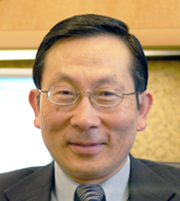
Dr. Kuan Wang
Institute of Chemistry, Academia Sinica
128 Academia Road Sec. 2, Nankang Taipei 115 Taiwan
Tel : +886 2 2789-8500
Fax: +886 2 2783-1237
|
|
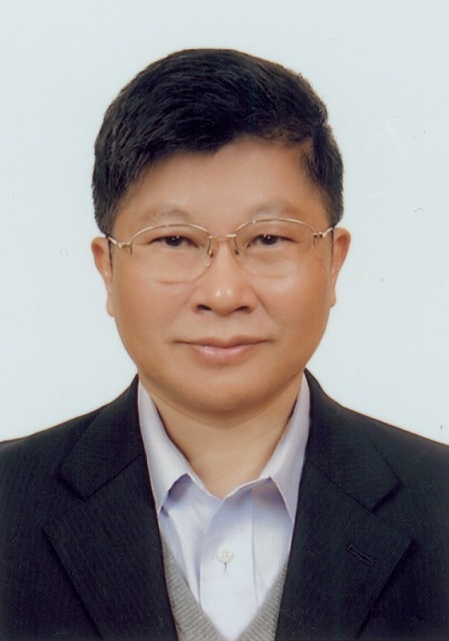
Dr. Lu-Hai Wang
National Health Research Institutes
No.35, Keyan Rd., Zhunan Township, Miaoli County 350, Taiwan
Tel :+886 37 246-166 #31001
Fax: +886 37 586-402
|
|
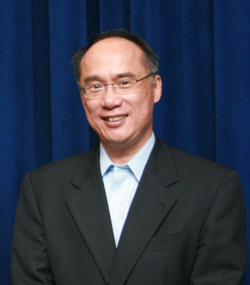
Dr. Kung-Yee Liang
National Yang-Ming University
President Office, No. 155, Sec. 2, Li-Nong St, Taipei, 112 Taiwan
Tel :+886 2 2826-7001
Fax: +886 2 2825-0936
|
|
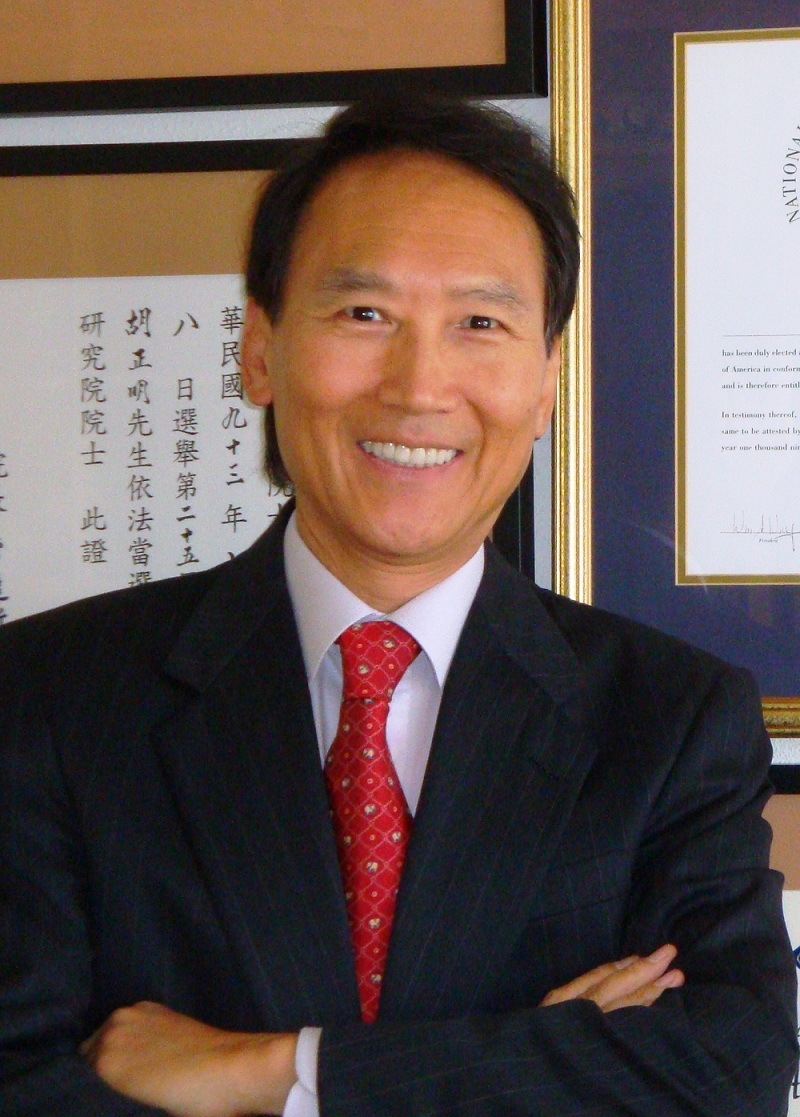
Dr. Chenming Hu
The Graduate School of University of California at Berkeley
Tel :+1 510 642-3393
|
|
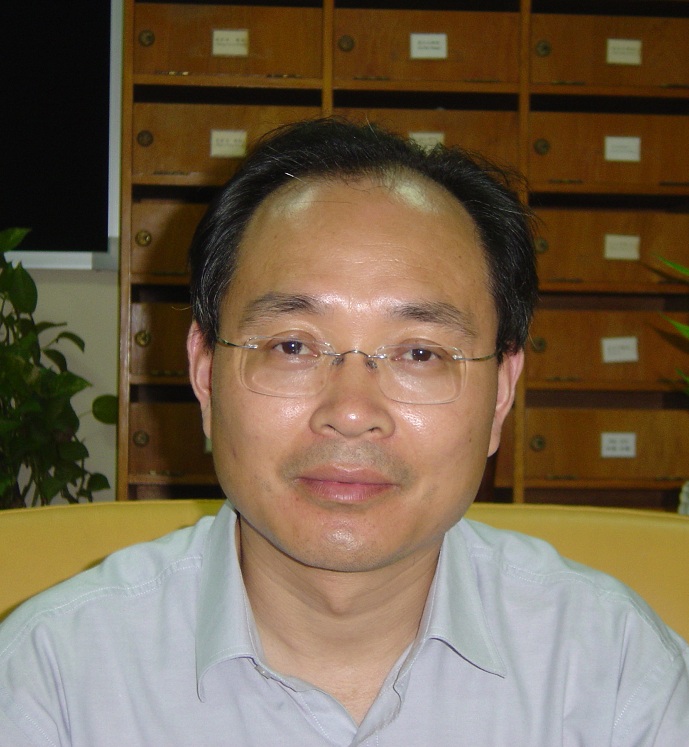
Dr. Hong-Kun Xu
Department of Applied Mathematics, National Sun Yat-sen University
No. 70, Lienhai Rd., Kaohsiung
Tel :+886 7 5252000#3836
Fax: +886 7 5253809
|
|
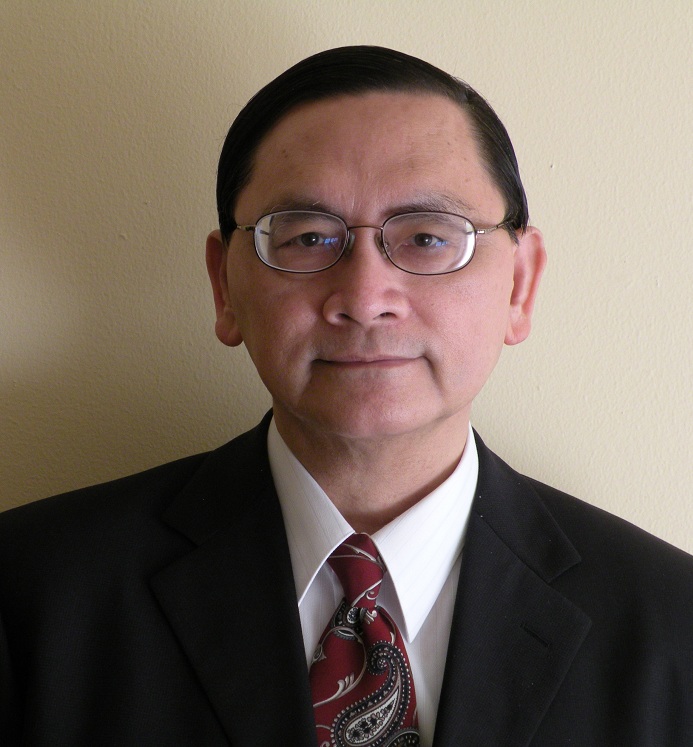
Dr. Shih-I Chu
The Kansas Center for Advanced Scientific Computing
Tel :+1 785 864-4094
|
Brief Resume:
Dr. Shih-I Chu received his B. S. (1965) and M.S. (1968) degrees in physical chemistry from National Taiwan University (NTU), D.Sc. degree in theoretical physics (1971) from National Tsing-Hua University, and Ph.D. degree in chemical physics (1974) from Harvard University. He was a postdoc fellow (1974-76) at Joint Institute for Laboratory Astrophysics (JILA) and J. W. Gibbs lecturer at the physics department of Yale University (1976-78). He joined the chemistry faculty position of the University of Kansas in 1978 and he has been the Watkins distinguished professor since 1990. He was the founding director of Kansas Institute for Theoretical and Computational Science (1992-1996) and Kansas Center for Advanced Scientific Computing (1996-2006). Since 2007, he has been also the distinguished chair professor of physics of National Taiwan University, and the director of the Center for Quantum Science and Engineering (CQSE) at NTU since 2008.
Dr. Chu received awards and honors for his contributions in atomic, molecular, and optical physics, and chemical physics, including J. Willard Gibbs Fellow, Alfred P. Sloan Foundation Fellow, John Simon Guggenheim Fellow, JILA Visiting Fellow, American Physical Society Fellow, Olin Petefish Award in Basic Sciences, distinguished alumnus of National Tsing-Hua University, etc. He was elected as an academician of the Academia Sinica in 2006 and a Fellow of the Academy of Sciences for the Developing World (TWAS) in 2012.
Dr. Chu’s research interests involve the development of a number of new theoretical formalisms, particularly generalized Floquet theories, self-interaction-free time-dependent density functional theory, scattering theories, and accurate computational methods for in-depth ab initio exploration of a broad range of problems of current interest in quantum science and technology. His works have significant impact to the advancement of strong-field atomic and molecular physics, attosecond ultrafast science and technology, quantum chaos and fractal, many-body resonances, molecular astrophysics, quantum and optimal control, and quantum computing and information, etc.
>> Link to personal website
TOP |
|
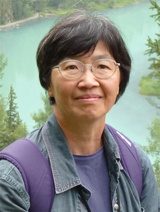
Dr. Soo-Chen Cheng
Institute of Molecular Biology, Academia Sinica
128, Sec. 2, Academia Road, Nankang, Taipei, 11529, Taiwan
TEL:+886 2 2789-9200
Fax: +886 2 2788-3296
|
Brief Resume:
Dr. Soo-Chen Cheng received her B. S. from Department of Chemistry, National Taiwan University in 1977, and received her Ph. D. from Department of Biochemistry, Duke University in 1983.? After working in the Laboratory of Molecular Virology, National Institutes of Health for one year, she moved to California Institute of Technology to study RNA splicing.? She returned to Taiwan to join Institute of Molecular Biology, Academia Sinica in 1988, and continued to study the molecular mechanism of the pre-mRNA splicing reaction using yeast as a model system.? She was promoted to Distinguished Research Fellow in 2003 and elected as Academia Sinica Academician in 2012.
>> Link to personal website
TOP |
|
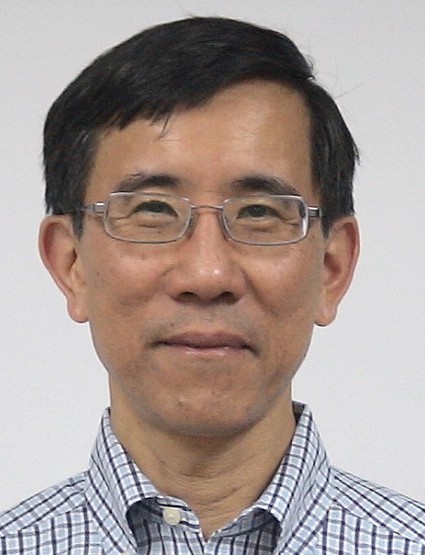
Dr. Tao-shih Hsieh
Institute of Cellular and Organismic Biology, Academia Sinica
128, Sec. 2, Academia Road, Nankang, Taipei, 115, Taiwan
Tel: 02-27899502
Fax: 02-27899503
|
Brief Resume:
Dr. Tao-shih Hsieh received his Ph.D degree in Biophysical Chemistry from University of California, Berkeley, USA in 1976. Hsieh is Distinguished Research Fellow and Director, Institute of Cellular and Organismic Biology, Academia Sinica, Nankang, Taiwan, China, and an Adjunct Professor of Chemistry in National Taiwan University. He was also Professor of Biochemistry Emeritus, Duke University, USA. Hsieh grew up and received his formative education in Taiwan. Throughout his career, he devoted his effort to the research of fundamentally important questions in chromatin structure and functions. Hsieh has made many outstanding contributions to the field of DNA topoisomerases and chromatin dynamics. His work identified, purified and characterized a eukaryotic type II DNA topoisomerase from Drosophila, providing a mechanistic basis for the induction of DNA breaks by many powerful anticancer drugs. Academician of the Academia Sinica, among others, he received the American Cancer Society Junior Faculty Research Award, and served on many advisory boards including US NIH Molecular Biology and Molecular Genetics Study Sections. Dr. Hsieh is also an elected member of the Academy Sciences for the Developing World.
>> Link to personal website
|
|
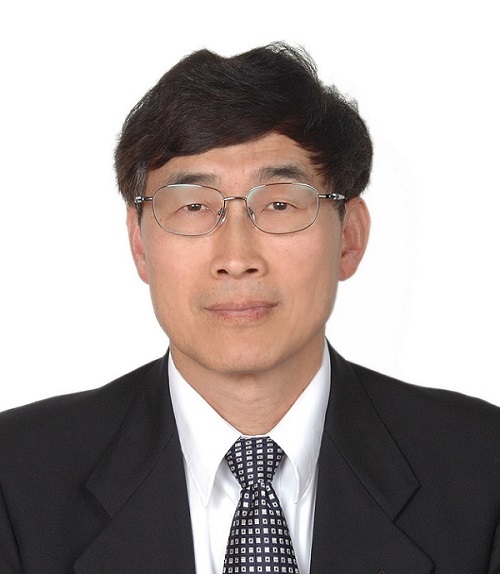
Dr. Shaw C. Liu
Research Center for Environmental Changes, Academia Sinica
128, Sec. 2, Academia Road, Nankang, Taipei, 115, Taiwan
Tel: 02-26537303
Fax: 02-27880332 |
Brief Resume:
Prof. Shaw C. Liu has been a Distinguished Research Fellow at the Research Center for Environmental Changes, Academia Sinica, Taipei, China since 1999. He is the founding Director of the Center. Prof. Liu has made fundamental contributions in atmospheric chemistry, air pollution and climate change. He has published more than 160 papers which have received more than 6500 citations. He is one of the first few Chinese geoscientists in the prestigious ISI Highly Cited Researchers list. Prof. Liu was elected as an Academician of Academia Sinica in 2012. He was elected a Fellow of the American Geophysical Union in 1994. He is also a Fellow of the Chinese Meteorological Society. In addition, Prof. Liu served as Editor-in-Chief of the Journal of Geophysical Research-Atmospheres (JGR) from 1988 to 1991.
>> Link to personal website
TOP |
|
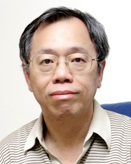
Dr. Shih-Chang Lee
Institute of Physics, Academia Sinica
128 Sec. 2, Academia Rd., Nankang, Taipei
Tel:+886 2 27896706
|
Brief Resume:
Academician Shih-Chang Lee was elected to the area of Physics. His research contributions are in leading a Taiwan team in the CDF discovery of the top quark, in the ATLAS discovery of the Higgs-like particle and in the precision measurement of positron fraction spectrum in space by AMS.
>> Link to personal website
TOP |
|
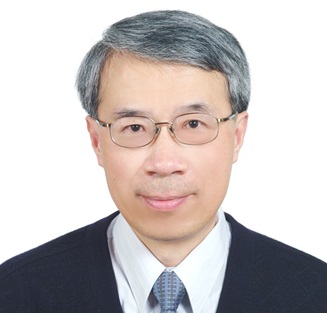
Dr. Ming-Daw Tsai
Institute of Biological Chemistry,
Academia Sinica
128, Sec. 2, Academia Road, Nankang, Taipei, 115, Taiwan
Tel:+886 2 27855696#3070
|
Brief Resume:
Dr. Ming-Daw Tsai received a B.S. degree in chemistry from the National Taiwan University in 1972, a Ph.D. in medicinal chemistry from Purdue University in 1978, and joined the faculty of The Ohio State University in 1981. He established the Chemistry-Biology Interface Training Program of OSU in 1996 and served as its director through 2003. He has also directed OSU’s Office of Research Campus Chemical Instrument Center for 14 years (1993-2007). From 2005-2008 Tsai served as Director of the Functional Proteomics Division of the Genomics Research Center of Academia Sinica, Taiwan. He also served as Director of the National Core Facilities Program during 2004-2010. From 2006-2014 Tsai served as Director of the Institute of Biological Chemistry of Academia Sinica.
His honour includes an Alfred P. Sloan Fellowship (1983-1985), the Camille and Henry Dreyfus Teacher-Scholar Award (1985-1990), the Distinguished Scholar Award of The Ohio State University (1992), an Elected Fellow of the American Association for the Advancement of Science (1992), the Kimberly Professor of Chemistry at The Ohio State University (2003-2007), and Distinguished Alumnus Award (Purdue College of Pharmacy). He also serves as an Associate Editor of Biochemistry since 2010. He was elected to Academician of Academia Sinica in 2012 and to Fellow of the World Academy of Science in 2014.
Dr. Tsai’s research interests include mechanistic enzymology of phosphoryl transfer enzymes particularly DNA polymerases and kinases, and structure-function relationship of proteins in DNA damage response and cancer signaling, particularly ankyrin repeat proteins and FHA domain containing proteins. He uses structural biology approaches, including NMR, X-ray, and mass spectrometry, to study mechanistic problems. Dr. Tsai has published over 260 research articles in chemical and biological journals.
>> Link to personal website
|
|
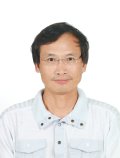
Dr.Ker-Chau Li
Institute of Statistical Science, Academia Sinica
128, Sec. 2, Academia Road, Nankang, Taipei, 115, Taiwan
Tel:+886 2 27831523
|
Brief Resume:
Academician Ker-Chau Li was elected to the area of Mathematical Sciences. Academician Li has published several seminal papers in statistics. His methods, Sliced Inverse Regression (SIR) and Principle Hessian Directions (PHD), opened up an important area of dimension reduction in high dimensional data analysis. He also invented a method of liquid association for bioinformatics applications.
>> Link to personal website
< |
|
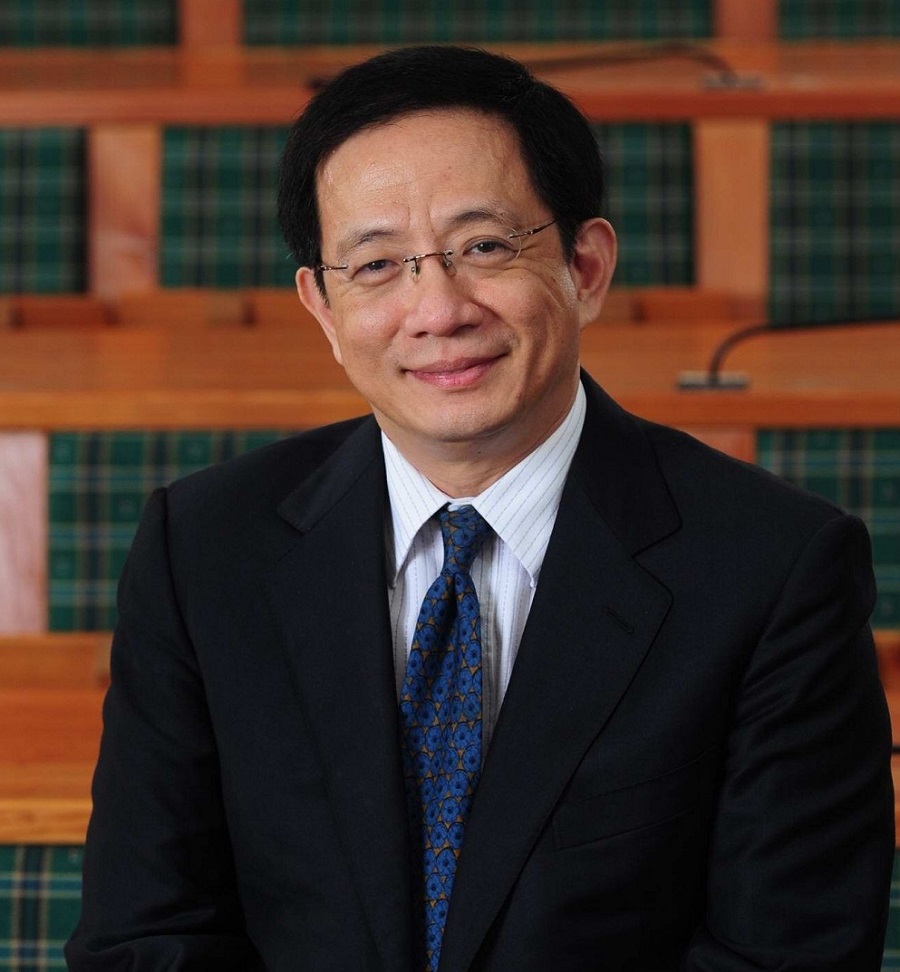
Dr. Chung-Ming Kuan
Department of Finance, National Taiwan University
No.1, Sec.4, Roosevelt Road Taipei 106, TAIWAN
Tel:+886 2 33661072
Fax:+886 2 33660764 |
Brief Resume:
Academician Chung-Ming Kuan was elected to the area of Social and Economic Sciences. Academician Kuan has long been devoted to the research of econometric theory, empirical studies in economics and finance, and economic forecasting methods. Recently, Academician Kuan has focused more on empirical issues. He has built several macroeconomic forecasting models and important economic indicators, such as the first financial condition index in Taiwan. These research results help the government and business sector to better understand or predict economic fluctuation.
>> Link to personal website
|
|
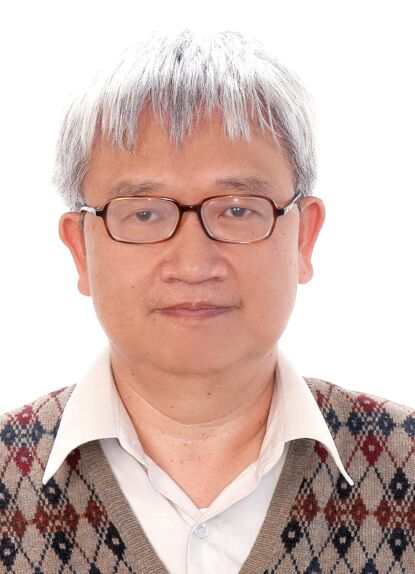
Dr. Jing Yu
Department of Mathematics, National Taiwan University
Room 524, Astronomy-Mathematics Building
Taipei 106, TAIWAN
Tel:+886 2 33669693
|
Brief Resume:
Academician Jing Yu was elected to the area of Mathematical Sciences. His research focuses on
number theory and arithmetic geometry. He has built up the field of positive characteristic
transcendence theory. The program he initiated leads successfully to the determination of all
algebraic relations for special zeta values, gamma values, and periods in the positive characteristic
world. The theory goes much further than what is possible with classical number theory.
>> Link to personal website
TOP |
|
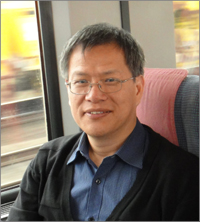
Dr. Ann-Shyn Chiang
College of Life Science
National Tsing Hua University
No. 101, Section 2, Kuang-Fu Road, Hsinchu, Taiwan
Tel : +886 3 5742770
|
Brief Resume:
Academician Ann-Shyn Chiang was elected to the area of Biological Systems and Organisms. Academician Chiang’s research is aimed at delineating the memory circuits within the Drosophila brain in the hope of increasing our understanding of how genes and circuits orchestrate complex behaviors. He has been reconstructing a brain-wide wiring diagram in Drosophila with results published in top journals.
>> Link to personal website
TOP |
|
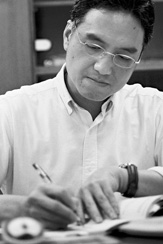
Dr. Yun-Han Chu
Institute of Political Science Academia Sinica
128 Academia Rd., Sec.2, Nankang, 115 Taipei, Taiwan
Tel : +886 2 26525326
|
Brief Resume:
Academician Yun-han Chu was elected to the area of Social and Economic Sciences. He is a three-time recipient of the Outstanding Research Award from Taiwan’s National Science Council, and was also bestowed the University of Minnesota’s Outstanding Achievement Award. Academician Chu’s area of expertise is East Asian democratization and political economy. His publications (including co-authored and edited works) include 15 monographs and collections of essays in English and Chinese. Academician Chu launched the Asian Barometer Survey, the region’s first and foremost comparative survey.
>> Link to personal website
TOP |
|
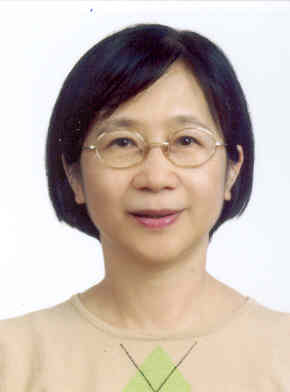
Dr. Mei-Hwei Chang
Department of Pediatrics, National Taiwan University Hospital
No. 8, Chung-Shan S. Road, Taipei, Taiwan
Tel : +886 2 23123456
|
Brief Resume:
Academician Mei-Hwei Chang was elected to the Area of Medical and Health sciences in 2017. She devoted in the research field of pediatric hepatology and cancer prevention. Her long term study successfully demonstrated that universal infant hepatitis B vaccination program in Taiwan effectively reduced the incidence of liver cancer in children, adolescents, and young adults. The results provide solid evidence to prove hepatitis B vaccine as the first cancer preventive vaccine in human. She also established the world first universal stool color card screening program in Taiwan for biliary atresia, which is the leading cause of liver death and liver transplantation in children. The program enhanced early diagnosis and treatment, and improved the long-term outcome.
She received many international academic award and honors, such as ISI Citation Classic Award, Sheila Sherlock Award of the International Association for the Study of the Liver, Outstanding Asian Pediatrician Award, Canadian Association for the Study of Liver/Canadian Liver Foundation Sass-Kortsak Award, and Distinguished Achievement Award of the American Association for the Study of Liver Diseases.
>> Link to personal website
TOP |
|
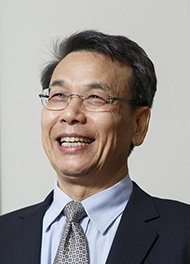
Dr. Wen-Hwa Lee
China Medical University
91 Hsueh-shih Road, Taichung 40402, TAIWAN
Tel : +886 2 26525326
|
Brief Resume:
Academician Wen-Hwa Lee was elected to the area of Structural, Cell and Molecular Biology. As a pioneer in cancer biology, Dr. Lee identified the first tumor suppressor gene, Retinoblastoma gene (Rb), and discovered that the re-induction of Rb gene could suppress neoplasm. He also elucidated the function of two breast cancer susceptibility genes, BRCA-1and -2 and their potential applications.
>> Link to personal website
TOP |
|
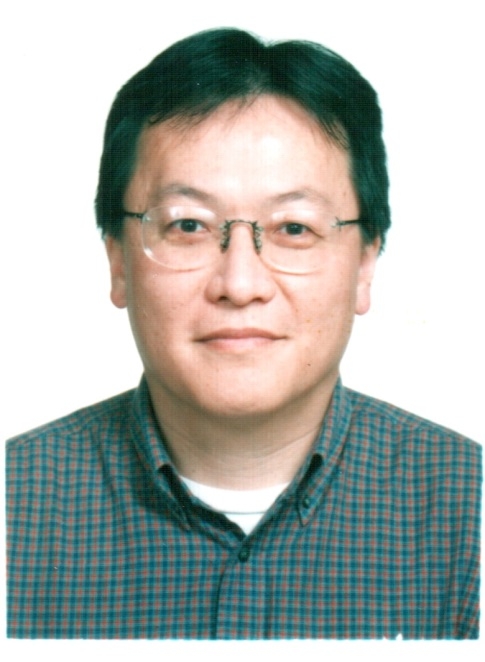
Dr.Sun-Lin Chung
Institute of Earth Sciences, Academia Sinica
128 Academia Rd., Sec.2, Nankang, 115 Taipei, Taiwan
Tel : +886 2 27839910#104
|
Brief Resume:
Academician Sun-Lin Chung was elected to the area of Astronomy, Space and Earth Sciences. Academician Chung has made significant contribution to our understanding of continental tectonics and magma generation based on his outstanding studies in High Asia (from Tibet to Iran) and neighboring regions. He was also the TWAS Prize winner in Earth Sciences in 2014.
>> Link to personal website
TOP |
|
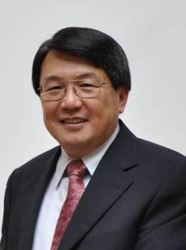
Dr.Leroy Liu
TMU Research Center of Cancer Translational Medicine,Taipei Medical University,250 Wu-Xing Street, Taipei City, Taiwan
Tel : +886 2 27361661
|
Brief Resume:
Academician Leroy Liu was elected to the area of Structural, Cell and Molecular Biology for his contribution to the discovery and mechanistic studies of type II DNA topoisomerases, proposing and establishing the twin-domain model of DNA template supercoiling for transcription, and the identification of human DNA topoisomerases as therapeutic targets for cancer.
>> Link to personal website
TOP |
|
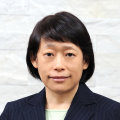
Dr. Mei-Yin Chou
Institute of Atomic and Molecular Sciences, Academia Sinica
128 Academia Road, Section 2, Nankang, Taipei 11529, Taiwan
Tel : +886 2 27839901
|
Brief Resume:
Academician Mei-Yin Chou was elected to the area of Physics. In the past few decades, she has established herself as one of the leading figures in first-principles electronic-structure calculations, with a distinguished career marked by numerous important contributions to the development and characterization of advanced materials. She is noted for the seminal work on the electronic structure of simple metal clusters and the properties of various types of nanostructures ranging from semiconductor nanowires to metal thin films to two-dimensional materials.
>> Link to personal website
TOP |
|
| |
|
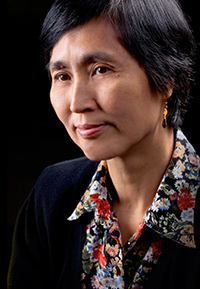
Dr. Bon-Chu Chung
Institute of Molecular Biology, Academia Sinica
128 Academia Road, Section 2, Nankang, Taipei 11529, Taiwan
Tel : +886 2 27899215
|
Brief Resume:
Academician Bon-Chu Chung was elected in the area of Structural, Cell and Molecular Biology. Dr. Chung uses the methods of cell, molecular, and developmental biology to investigate the functions and regulation of genes. She deciphered the regulation of steroid synthesis, and characterized steroidogenic pathways in zebrafish. She discovered the action mechanism of neurosteroid pregnenolone and received wide appraise. Dr. Chung won the Academy Award from the Ministry of Education and L’OREAL For Women in Science Award. She was elected into the Zoological Society of Kolkata in India and the International Molecular Biology Network for Asia and the Pacific Rim. Dr. Chung served Taiwanese research community as the Director General of the Department of Life Sciences in National Science Council (the former Ministry of Science and Technology).
>> Link to personal website
TOP |
|
| |
|
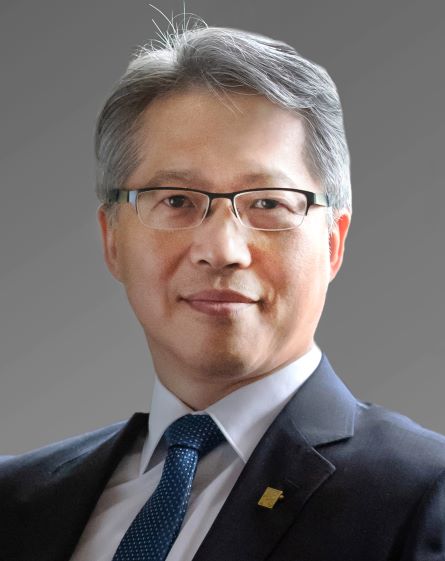
Dr. James C. Liao
Institute of Biological Chemistry, Academia Sinica
128 Academia Road, Section 2, Nankang, Taipei 11529, Taiwan
Tel : +886 2 27899400
|
Brief Resume:
President James C. Liao was elected to TWAS in the area of Biological Systems and Organisms. President Liao is a pioneer in Metabolic and Synthetic Biology, specializing in both the microbial synthesis of fuels and chemicals, and the redesign of primary metabolic network. He also invented Network Component Analysis (NCA) for analyzing transcription regulatory networks, and designed synthetic gene-metabolic regulatory circuits, which set the foundation for Metabolic and Synthetic Biology. President Liao is an elected Member of the US National Academy of Engineering, US National Academy of Sciences, and Fellow of National Academy of Inventors. He received numerous awards and recognitions, including the Presidential Green Chemistry Challenge Award, the White House “Champion of Change” for innovations in renewable energy, the ENI Renewable Energy Prize bestowed by the President of Italy, and the National Academy of Sciences Award for the Industrial Application of Science.
>> Link to personal website
TOP |
|
| |
|
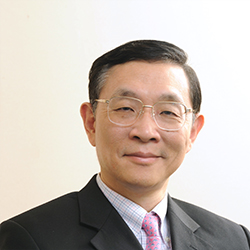
Dr. Chih-Yuan Lu
Macronix International Co., Ltd.
No.16, Li-Hsin Road, Science Park, Hsin-chu, Taiwan
Tel :+886 3 5786688
|
Brief Resume:
Academician Chih-Yuan Lu was elected in the area of Engineering Sciences. With AT&T Bell Labs in the mid-1980s, Dr. Lu has made seminal scientific innovations and outstanding technical contributions; later he joined ERSO/ITRI in 1989 as a Deputy General Director responsible for the MOEA grand Submicron Project. This project successfully developed Taiwan the first 8-inch manufacturing technology with high density DRAM/SRAM, and thus led Taiwan semiconductor industry onto world stage. Dr. Lu is a key driver for Taiwan’s memory industry. He was elected Fellows of APS, IEEE and US NAI. Dr. Lu has been granted IEEE Frederik Philips Award and the ROC national highest honor “Presidential Science Prize”.
>> Link to personal website
TOP |
|
| |
|
|  |









